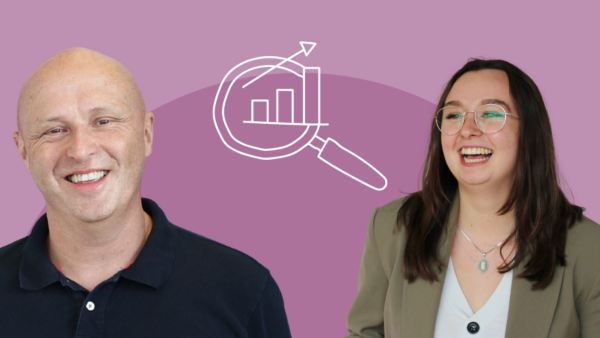Podcast transcript:
Introduction – why kindness matters
I’m really excited for this episode. I read (actually heard) about some research evidence a while back that I felt I really needed to share with you on the podcast and today’s the day. This is information that may change your life. And/or the lives of people you have in your life. And potentially the lives of people that you don’t yet know. So, spoiler alert, before I get into the detail: the availability of social support outperforms almost all other forms of lifestyle advice from medics when it comes to prolonging life, including stopping smoking, stopping drinking, exercise and blood pressure medication. Yes, that’s right, compassion knocks most recommended medical interventions out of the park.
Today’s episode is about the power of compassion and how you can bring more of it into your life, into the lives of the people you care about and into the lives of everyone you come into contact with, in practical ways.
The science of compassion and social support
First of all – the science. The neurotransmitter oxytocin plays a vital role here. We know that social connection has been a fundamental building block in human evolution. So it should come as no huge surprise that we are wired for social connection and that the hormones released when we connect with other humans have a health-protective, health-promoting effect. Oxytocin can induce anti-stress-like effects such as reduction of blood pressure and cortisol levels. Experiences such as touch and psychological support, the social interaction of daily life, any social activity involving transfer of support, warmth and empathy a positive environment, continuously activate and modulate the oxytocin system and are likely to be health promoting.
Conversely, when we feel socially isolated, we are unable to access the benefits of oxytocin. Over time, this can lead to increased tendency towards mental health issues such as anxiety and depression, as well as physiologically to inflammation in the body, which is the basis for most disease. Which then logically leads us back to the study I mentioned earlier that social support being available creates a stronger life-prolonging effect than many other medical recommendations relating to smoking, drinking, exercise and obesity.
The power of compassionate communities
I’d like to take you now to a really significant piece of research and practice that illustrates these points. It started out with several healthcare professionals in the Somerset town of Frome (population 28,000) observing that many of the problems people were bringing into surgery visits weren’t obviously treatable using conventional medical interventions. Issues like lifelong depression, low self esteem, agoraphobia and anxiety are often presented to GPs, and this can lead to social isolation, which as we’ve learned leads to lowered levels of oxytocin, increased inflammation in the body and then over time, a greater likelihood of disease.
So a small group of GPs in Frome decided to change their approach and to prescribe social support in addition to traditional medical treatment for suitable people turning up in their surgeries. They set up conversation groups across the town, a number of social groups (for those people who wanted to belong to a group) and they trained up people in the community on how to provide better social support for others. In the case of conversation groups (which would happen in local cafes), on average each of the 600 people trained had 20 conversations per year with people who were socially isolated. When you add that up, that’s 12,000 additional conversations across a population of 28,000. But the team learned that if you give people the opportunity to show compassion and provide support to people in their communities, many will jump at the chance.
So far sounds lovely, right? Ok now to the impact. Ready? Are you sitting down because this is fairly mind-blowing. Between 2013-2017, while emergency admissions to hospitals across the county of Somerset increased by 29%, incurring a 21% increase in costs, Frome saw admissions fall by 17%, with a 21% reduction in costs. This represents 5% of the total health budget. No other interventions on record have reduced emergency admissions across a population. All of this has been written up in several journal papers and a book by Dr Julian Abel, who was part of this group in Frome. He’s also recorded a TED Talk.
Mic drop. I rest my case. What more can I say? But while this is an amazing finding, it’s still very much not the norm. So as well as lobbying your local healthcare professionals, council, MP or anyone else who is able to galvanise cross-community action, what else can you do?
So what you can do to bring more compassion and social support to you and to others?
First of all, what can you do for you? As I’ve said, having social support acts as a protective factor throughout our life and particularly during stressful times. And as I’ve said, I mean this at the neurobiological level. When you feel that you have strong social support, due to oxytocin release, it has been shown to reduce stress-related illnesses, and actually also increase self-confidence, improve problem-solving, reduce anxiety and improves mood. And in addition to this, the stronger your bonds with your social network, the greater your resilience will become. So, working on your relationships and deepening the connections you have will make a significant difference to your health. I have much more on how you can build out your support network at work and home at my podcast ‘Building out your support network’, which is at Season 8, episode 4.
Now what about what you can do for others. I have a story here which illustrates the power of connection and compassion. Not medically or neurobiologically (although those aspects will have been in play), but from a social connection point of view. And for me it shows how such a simple act of kindness can make the world of difference to someone else’s experience. So a friend of mine recently moved to a new village. She knew no one and had no local social support network. But the people in her street invited her to join their local WhatsApp group and welcomed her to the community. But there’s more to this story. My friend was out walking her dog and unfortunately her dog happened into an electric fence in a field with sheep. She got a shock and not having been electrocuted before, didn’t want to carry on on the walk. Until a kind fellow dog walker passed by. My friend explained what had happened and how her dog likes to follow other dogs, asking if it might be possible to follow them for the rest of the walk until they got near to home. The friendly dog walker agreed and they managed to get home.
The next day, they started out on their walk but now my friend’s dog was associating the presence of sheep (who, remember, had been in the field with an electric fence) with pain and fear and wouldn’t go past any fields with sheep in. So the walk took 5 times as long as usual and my friend was at her wit’s end with a super anxious dog. Which she mentioned on the community WhatsApp group. Within an hour, a local runner had sent through a colour coded map showing all the fields in the local area with and without sheep. Sorted. How simple. How thoughtful. How kind. And what an impact on my friend and her dog. And suddenly how unexpected it is that acts of compassion and kindness like this actually heal us. Of course they do. We’re wired for it.
Kindness, compassion, social support and strengths
A word here on strengths. For those of you who know Strengthscope, you’ll know the Relational strengths cluster. Which includes Compassion. Empathy. Relationship building. Collaboration. Yes, these are strengths that relate closely to what I’m talking about today. They relate to what energises you most. If you have a Compassion strength, you are likely to be energised by caring for others, by looking after people, by putting a metaphorical, or physical, arm around someone’s shoulder when they need it. But what if you don’t have Compassion? No problem, ask yourself what strengths you do have that can help you reach out to, and connect with, people. If this isn’t your natural territory, how about Results focus or Initiative to just do it, or Self improvement or Resilience to relish the challenge and the opportunity to learn? And there’s just four. There are many sources of energy you can draw from in order to show compassion or to connect socially other than Compassion itself. So get creative and put your strengths to work.
Conclusion – Compassion matters and it’s in your hands
This week I have no outro or conclusion that’s any more complicated than to simply be kind. Smile at other people. Take time to have conversation. To help someone else (and you) feel connected at a human level. Seriously, as I’ve explained, it could help live a longer, and happier, life. Till next time, be kind.
Resources
Julian Abel’s book on Compassionate Communities in Frome
Hospital admissions study Frome vs Somerset
Social support outperforms other forms of medical advice/intervention













